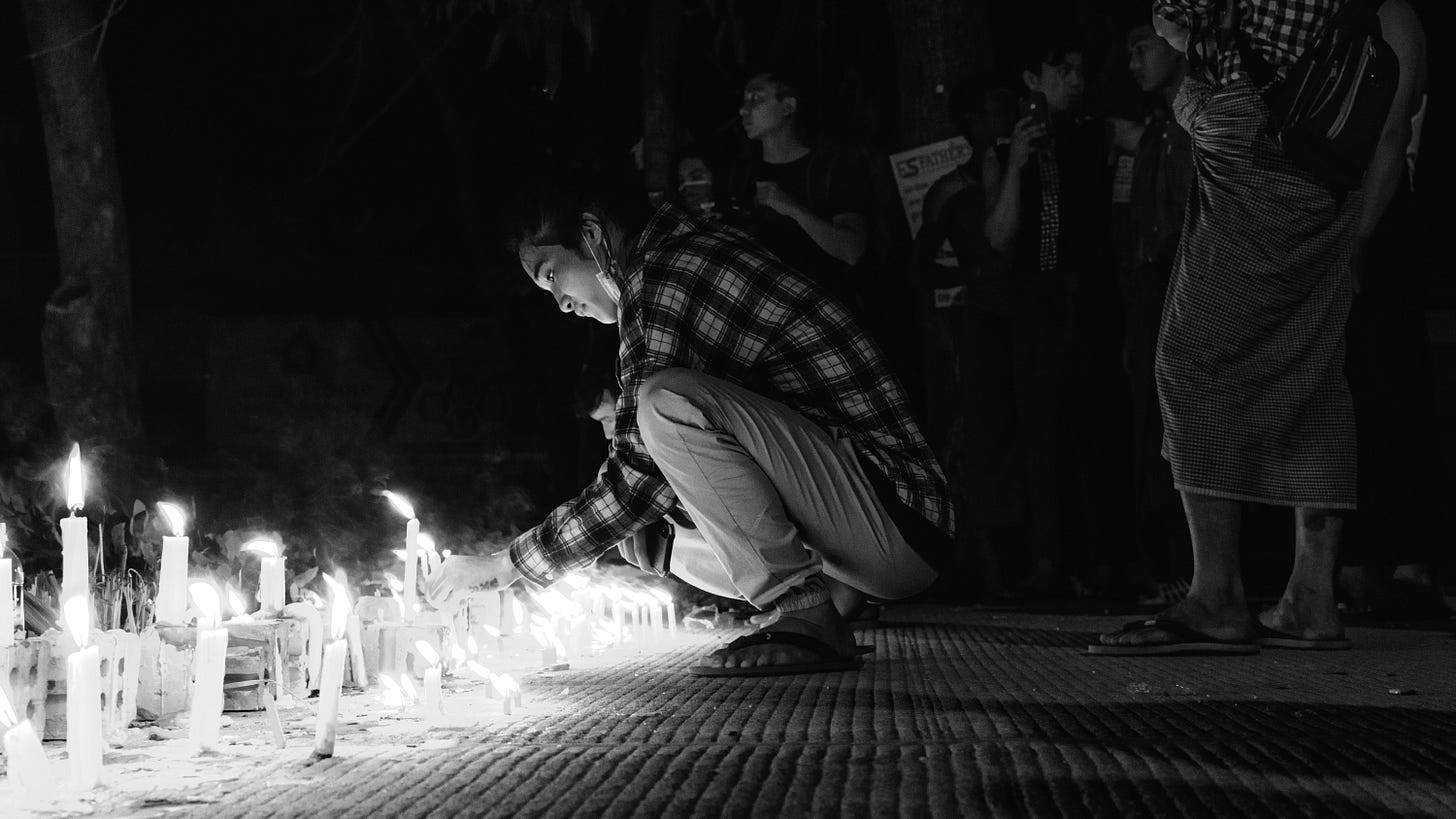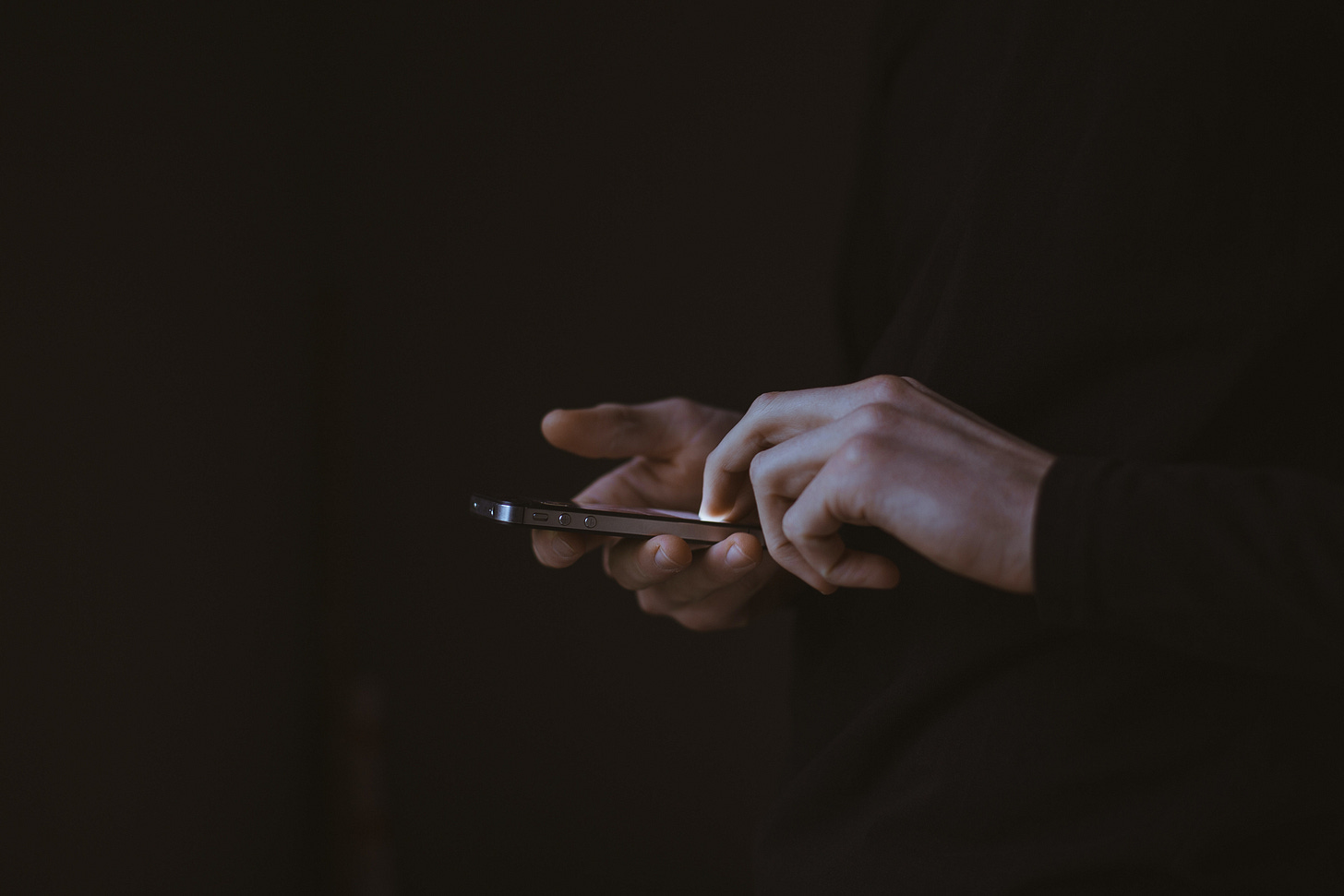You Can Always Google It, Right?
How Digital Amnesia Makes Us Vulnerable
So, yeah, what was I saying just now?
Something about how I can’t remember anything these days? Sounds like an old-person’s problem, you say? First of all, no. Thanks to digital overwhelm, the so-called Google Effect is an equal-opportunity condition across generations. So far, the science on digital amnesia appears scanty, but Mode/Switch readers may be interested to note that rising professionals complain of memory loss, too. Everybody’s uploading their brains to handheld devices just as fast as they can.
But you know one thing that doesn’t upload easily? Human vulnerability.
Photo by Zinko Hein on Unsplash
This week, your newsfeed was full of photos of Chinese mourners and protestors, decrying President Xi Jinping’s Zero Covid policies, desperately trying to memorialize the names of ten people who died in a lockdown fire in an Urumqi high-rise. Some grieving protestors tried an ironic tack: they held up blank sheets of paper—low-tech devices for saying the unsayable and remembering the forgettable.
But the bad news is that, in all the digital haze, you and I will soon forget those powerful images and the precious lives they memorialize.
Besides collective experiences of digital amnesia, we also feel memory loss personally. The consequences can be deeply disturbing—as I learned recently from interviewing early-career professional Sarah Hao. After graduating from Calvin University in 2016 with a degree in digital communication (and minors in Japanese and studio arts), she quickly landed a User-Experience (UX) position in a large Chinese corporation.
Sarah Hao (not using her Chinese first name for privacy reasons)
As my own research has detailed, UX designers sometimes do spiritually rich and vitally human-centric work. But Sarah’s job entailed analyzing eyeball movements across a screen. The goal? Find the very best place to put a clickable “pay now” button.
In China, UX firms like Sarah’s rise and fall fast. Fighting to stay ahead of the trends, they develop platform after platform, only to see them sink into oblivion. It’s all too easy to log in to these fragile social media companies without being able to remember where you’ve disseminated your private information. (And what happens to your data after a company deactivates?)
Photo by Gilles Lambert on Unsplash
In any case, Sarah found herself having to keep track of information across as many as 40 different digital accounts at a time. Even so, she studied the small print of social media info-privacy agreements, having learned the hard way through Facebook’s clumsy publicizing of some fourteen million users’ private information. Sarah’s Facebook account was among those outed, and she was disconcerted to see strangers freely commenting on her life. She learned to be careful about her data, watching her privacy settings, avoiding disclosing her location, maintaining care about pics.
But you can’t keep track of everything in a job that requires you to upload information to so many platforms. Sarah discovered this painful fact during what seemed like a routine visit to the veterinarian’s office to take care of her cat.
Sarah’s beloved cat
After putting her pet on the table, Sarah felt her phone buzz. Nothing unusual: she got notifications like this all the time thanks to a corporate social media followership numbering more than 30,000. But as she unlocked her phone, she saw two messages in quick succession:
The first said, simply, “Do you live here?” The attached photo showed her apartment and was followed by the second text: “I’m here now.”
Sarah acknowledges that some people might have been flattered by these messages. Some people might have wanted to meet the guy. Some might have even seen his query as a new indicator of celebrity. But she felt only shock as she stared at the pic of her front door. Suddenly, the veterinarian’s examination of her cat was taking way too long. Sarah wanted to scoop up her pet and run out the door. But she felt too shaky to drive, so after the doctor had finished she called for a ride.
There’s a clear connection between our capabilities to concentrate and our powers to remember.
Back in front of her laptop, she spent days trying to figure out how this random guy had found her home. Soon, the days of anxiety stretched into months as she worked back through account after account, trying to find the leak. She told me the anxiety lasted for six months. Eventually, she eventually figured out that none of her current platforms was at fault. It was instead a long-ago high school social media platform on which the stalker guy had found an image which he could then piece together with her more recent posts and finally, laboriously, pinpoint her apartment.
We need “a new ecosystem” not built on the amnesia that leads to trick-clicking.
What is this, but a parable of overwhelm? Personal information scatters across too many platforms today with the result that, even for careful folks like Sarah, digital amnesia feels inevitable.
When I asked Sarah what advice she’d give to other rising professionals about their data, she said, in effect, Be not afraid. That sounded counter-intuitive to me. Her story had, in fact, give me the willies. But her counsel against panic arose from a sense that more and more companies are sharing clear information about privacy settings. There are more and more ways to educate yourself about your data.
She’s right. And because there’s a clear connection between our capabilities to concentrate and our powers to remember, it’s also encouraging that more social media platforms are responding to the negative effects of virality-driven algorithms. (If you think about it, cycles of virality feed on amnesia.) Platforms like Mastodon (check out this conversation) and Substack are attempting to heal our powers of concentration. As one essayist puts it, they are trying “to build a new ecosystem” not dependent on “trying to trick [users] into clicking." We need more such platforms whose financial models do not rely on amnesiacs who trick-click.
2400 years ago, Plato warned his readers that we could use the written word for reminding but not for remembering. In this week’s news, the images of grieving people holding up wordless sheets of paper reminds us all what’s at stake when we forget that we belong to a world of the wondrously forgettable.
Photo by Annie Spratt on Unsplash
This week’s Mode/Switch about digital disremembrance has been heavy, so let’s close things out with a funnier word about forgetfulness.
Thanks for sharing this with rising professionals—whose contact info you don’t have to Google.
.







